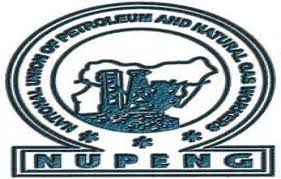Chief Executive of Clean Technology Hub Inc., Ms Ify Malo, has joined the league of industry experts that see Nigeria’s mini-grids regulations as one of the best in the world.
Explaining sundry issues relating to the sub-sector in an interview in Lagos, Malo argued that all the regulations guiding investors in the nation’s mini-grid and solar energy development are germane for gainful investments.
She said “The regulations make provisions for interconnected mini-grids (mini-grids that can make use of existing power distribution facilities) and also has strong protections for communities in which mini-grids can be sited. This is besides the numerous other regulations in place for renewable energy. There are still some improvements that can be made but we do have robust regulations in place”.
Business Hilights recalls that a mini-grid is an integrated local generation and distribution system with installed capacity below one megawatt, capable of serving numerous end-users independent of the national grid. They have a significant role to play in electrifying Nigeria as they are cheaper and faster to deploy than extending the traditional power grid.
Explaining more, Malo gave an example, saying “Imagine a remote village far away from any transmission lines and without electricity: to provide power to this community, it means laying expensive cables and poles to supply this village”.
“The return on this investment cannot be justified and it will be adding to an already overburdened grid. However, through mini-grids, this community can be provided with enough power for its needs at a cheaper cost than grid extension. The reality is that the grid cannot reach everyone; thus, mini-grids become ideal for communities that are either too far from the grid or on it but do not receive power from it.
On how solar home systems can save Nigeria about $4.4bn yearly in energy cost, Clean Technology Hub founder said “Solar Home Systems will save Nigeria about $4.4 billion a year through savings in spending on fuel for expensive generating sets for homes and small businesses. A lot of our petrol consumption is not by vehicles, but by energy-deficient homes and businesses for powering small generators that we popularly call “I beta pass my neighbor”. These generators are not just expensive, but they are also polluting and inefficient. Replacing these generators with solar home systems greatly reduces the spending by these homes and businesses; on a macro scale, they save Nigeria about N1.5 trillion yearly”.
However, on where the bulk of funding to drive the revolution will come from, Malo said “We need to rethink power as a social service – power is a service for which users should pay. Considering our population and level of economic activity, there is a lot of economic opportunity in Nigeria’s power sector.
“As you also know, the government has largely exited the power sector in 2013 via the unbundling and privatization of the now defunct National Electric Power Authority and only playing the role of regulator and policymaker. So we envisage that the funding for rural electrification will largely come from the private sector which will recognize the business opportunities within.









